
1
Recently released Zhang Lu's new film "The Long Confession", brothers Li Chun (played by Xin Baiqing) and Li Dong (played by Zhang Luyi), who are very different in character and are out of touch, set out from Beijing together to come to the quiet Japanese water city Yanagawa, where they meet their teenagers. The beautiful woman Liu Chuan (played by Ni Ni), who was in love with each other during the period, is reunited. 
"The Long Confession" poster
Seeing each other again after 20 years, the three are still the same as they remember each other, and their past relationship has gradually become apparent. But just like the weather in the daytime, the truth of the past is sometimes clear and sometimes blurred. However, several dances performed in the dark of night brought the former emotional ties of the two men and one woman out of the ambiguous state of wanting to talk and leave, and show them clearly.
As the past emerges, the mood of the parties is ups and downs, but the superficial relationship has not broken the triangular structure of 20 years ago. Just like the waters that Liuchuan passed through the city, and the lake in Beijing's Houhai back then, the waves were only slightly rising. 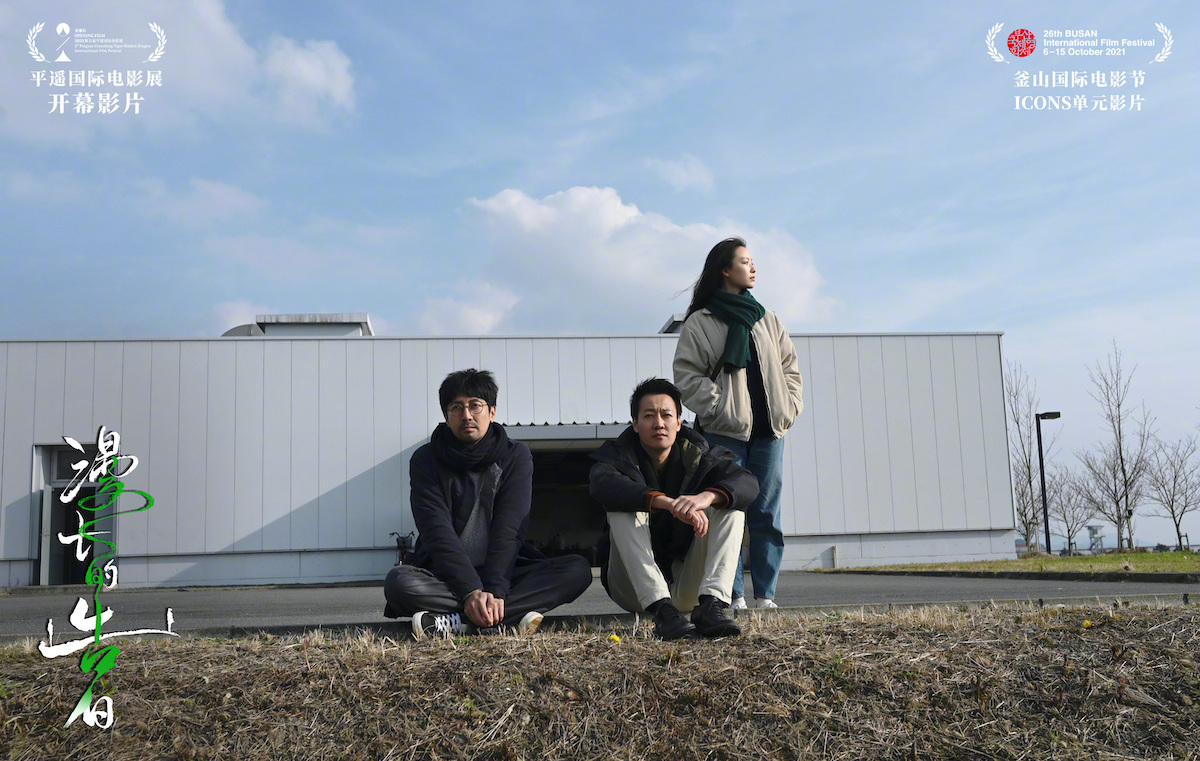
Ni Ni, Xin Baiqing and Zhang Lu play Liu Chuan, Beginning of Spring and Beginning of Winter
Therefore, although "The Long Confession" is dressed in the "threesome" of Truffaut's "Jules and Jim", it pays tribute to Jules, Jim and Yanagawa with the pictures of Lichun, Lidong and Yanagawa running in the corridor of the rowing production base. Catherine ran on the romantic bridge, but the story was not as tragic as the country.
This film, shot in Beijing and Yanagawa, has the shadow of classic Chinese and Japanese literary films, such as Fei Mu's "Spring in a Small Town" and Morita Yoshimitsu's "Afterwards". The emotion of "severing without rationality and chaos" is limited by the rationality of "sentence on love and ending with propriety", leaving only "this love can be reminisced, but it was lost at that time".
The triangular emotional entanglement in the film is determined by the differences in the parties' geographical origin, family structure, growth experience and personality characteristics. It is related to Zhang Lu's previous works and points to his views on hometown and foreign land, identity and identity, reality and dreams, history and A consistent discussion of topics such as memory. 
Stills of "Bean Man River"
However, Zhang Lu's brushstrokes this time are more gentle. The death incidents that he has placed on the topic in the past, such as the suicide of a child in "Doman River", the husband's peaceful death told by the wife in "Gyeongju", and the wife's death in a car accident told by the husband in "The Goose" , In "Lili", parents and children are separated by yin and yang due to an explosion, etc., all of which have a sudden nature, reflecting the bad factors existing in the social environment or local small environment.
The death in "The Long Confession" is clearly foreshadowed at the beginning, and it is almost exclusively related to love. Li Dong learned that his stomach cancer was at an advanced stage, and he took Li Chun with him to go to Liuchuan, where they had never been, to find Liuchuan they still love.
2
As a Chinese Korean "author director", Zhang Lu's debut short film "11 Years Old" in 2000 told the audience that his creation was deeply influenced by his childhood life. With the help of a football rolling on the frontier wasteland, the film shows the process of a boy being isolated by a group of boys of the same age, and outlines the director's own childhood loneliness. 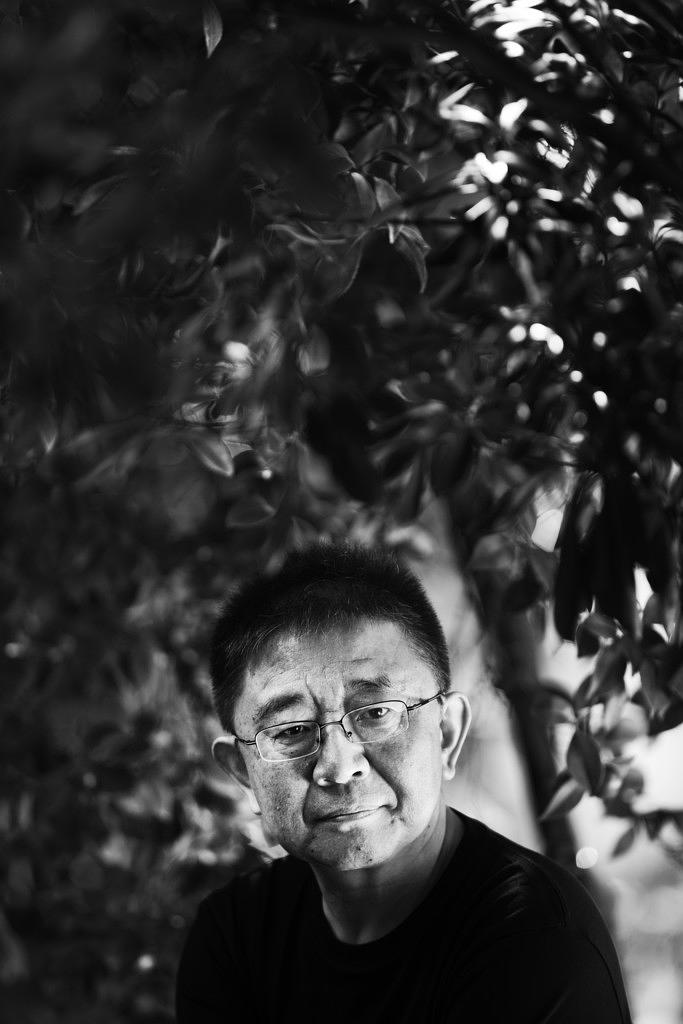
Zhang Lu
Zhang Lu was born in a village near the border between China and North Korea in Yanbian, Jilin Province. Since most of the ethnic Koreans around him are descendants of North Korean immigrants, and his grandmother is from South Korea, he was the object of exclusion from his Korean friends as a child. The dual borders of geography and psychology made him sensitive to his own identity when he was young, and it also prompted him to project his childhood feelings on the characters he created when he made movies as an adult. 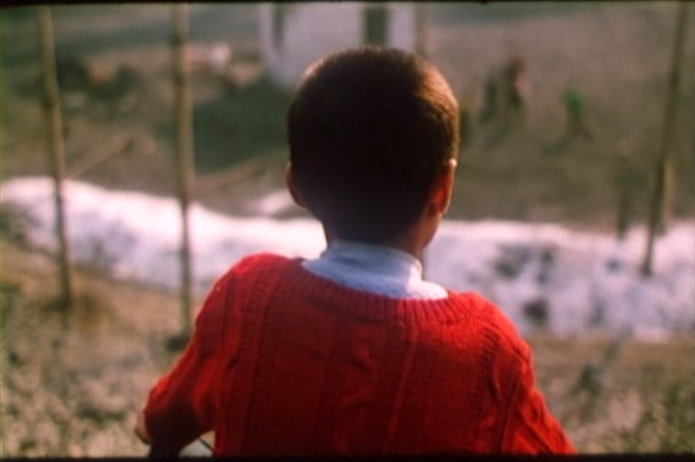
"11 years old" stills
The characters under his lens, whether children or adults, are difficult to integrate into the environment like the boy in "11" for various reasons. Some of them are even more strange in their speech and behavior, which makes acquaintances dislike and strangers stay away.
Zheng Zhen, a young North Korean defector in "Douman River", although he made Chang Hao as a friend in a Chinese village near the border and was treated well by Chang Hao's family, the law does not allow him to start a new life here. The Korean boy in "Mango" came to live in a small town in the north with his mother from his hometown. He occasionally played with local children, but he couldn't get along with them. 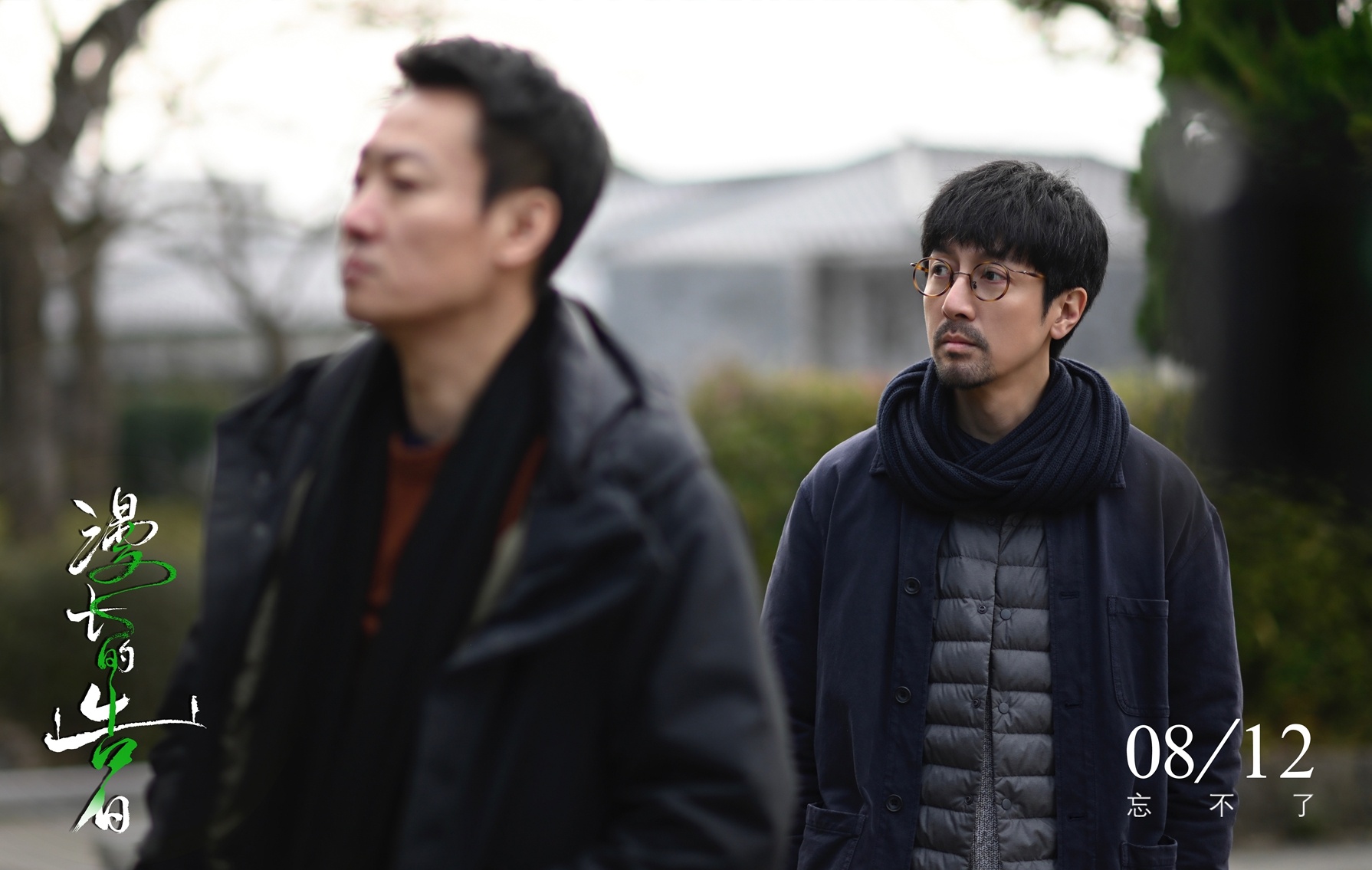
Beginning of Spring and Beginning of Winter
Li Dong in "The Long Confession", although he always followed Li Chun's ass when he was a child, but because of his unbelievable words and deeds, he could not enter his brother's circle of friends and life. Lichun's younger brother, who does not fit in with society, is still constantly saying that he will be sent to the "Huilongguan Anding Hospital" for treatment of mental illness. It can be imagined that he was suspicious of him in the back of his heart. After the two became adults, Lichun got married and started a family, and Lidong remained single. In addition to the death of their parents, their contact became less and less. The only way to maintain brotherhood was to meet occasionally to drink and chat at a Japanese-style tavern near the Drum Tower.
Ironically, even though the owner of the liquor store had gotten to know them well, he still suspected that the two were not brothers because they were so alike. Although they have never left Beijing since they were young, Lichun has an active disposition, is chatty, and is full of "Beijing movies". Lidong is passive, taciturn, and does not speak Beijing dialect.
The biggest difference between the two brothers is that Lichun lives step by step like most people, and is not tired of the past when he walks forward, but Lidong is bound by memory, spinning in place in the old time and space 20 years ago.
Because of this, Lidong did not tell Lichun, the only relative living in the world, of the catastrophe in his life. Instead, when his life was about to come to an end, he asked him to come to a foreign country with him, hoping to find comfort with the help of Old Meng Qianying.
But even if he is trapped in the whirlpool of the past and cannot extricate himself, Li Dong still needs to find a small exit for the confusion of the present tense. With a lighter and no cigarettes at the beginning, he suddenly told her about his condition when he begged a stylish and elegant lady for cigarettes in the smoking area of Peking University Hospital. The result of the abrupt behavior was nothing unexpected. The lady hastily crushed the cigarette and ran away from him. 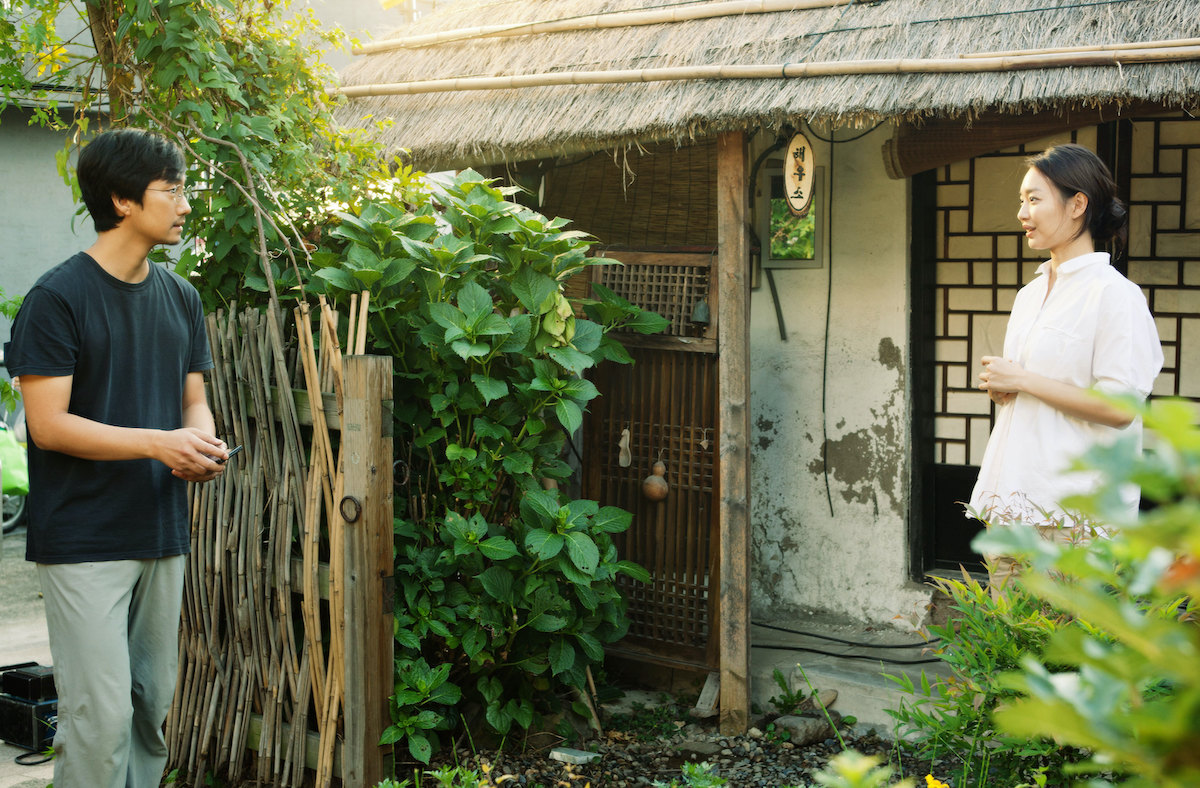
"Gyeongju" stills
Similar scenes of "weird people" scaring away strangers often appear in Zhang Lu's films. In "Gyeongju", Cui Xian, who has only cigarettes and no lighters, put two lit Zhongnanhai into his mouth when he borrowed a fire from a young soldier to light a cigarette. His actions made the soldier look stunned, and the latter hurriedly returned to the lighter and left. In "Yong Goose", Yunying, who was walking alone on the street, saw a woman using public fitness equipment to exercise, and walked over to share it with her. The sudden approach of the strange man made the lady extremely embarrassed, so she immediately got up and walked away.
3
The authorship or creative characteristics embodied in Zhang Lu's films are not only rooted in his childhood experience, but also shaped by his later study, work and life experiences.
He graduated from the Department of Chinese Literature of Yanbian University, and went to Beijing to write. Later, with the advice and help of Li Cangdong and other friends, he embarked on the road of filming like Li Cangdong. and other East Asian countries. Because he was invited to Yonsei University in South Korea to teach film creation in the year of his appointment, and stayed for ten years, most of his masterpieces in recent years were shot in South Korea.
These rich experiences, which are rare for ordinary people and envied by artists, determine the unique temperament of his works as a whole. Compared with the films of famous East Asian directors such as Jia Zhangke, Li Cangdong, and Shizhi Yuhe, who mainly use their native languages to make films in their own countries, Zhang Lu's films not only have Chinese, Japanese, Korean, English, Korean and other languages interchange, but also East Asian. It can be said that the fusion of culture and art with national poetry, painting, folk songs, novels, etc. as the main body has no local attributes, and is full of roaming colors. 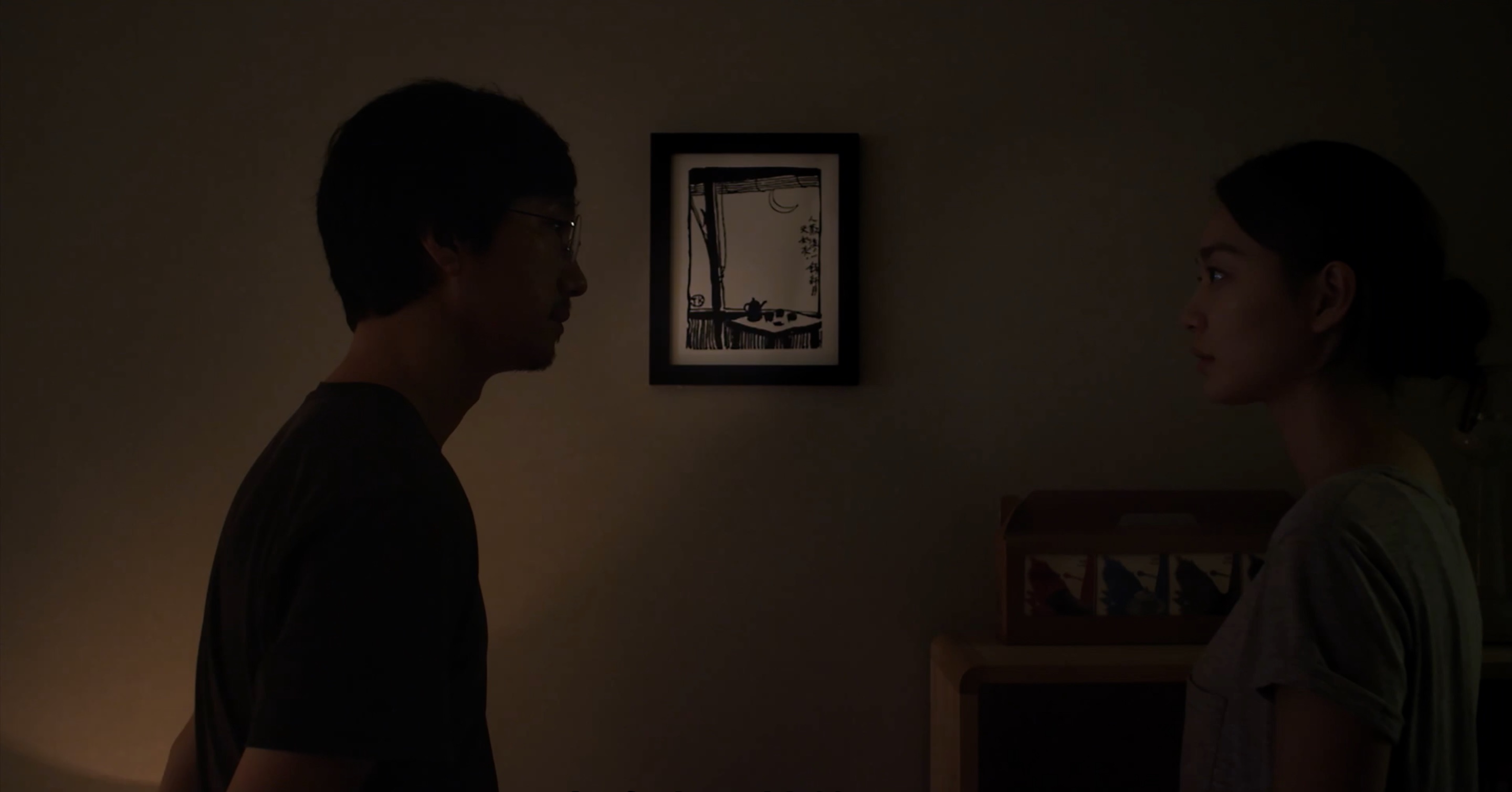
Feng Zikai's Poems and Paintings in "Gyeongju"
Cui Xian in "Gyeongju" is Korean, and because he teaches at Peking University (combined with the Peking University Hospital in "Long Confession", Zhang Lu seems to have a complex for this institution), so that he can speak fluent Chinese, There is also research on Feng Zikai's poems and paintings. Yunying, who is also a Korean in "Yong Goose", has never been to China, but because she has studied in a Chinese training institution for two years, she can communicate with Chinese people in Chinese. Like most Chinese, she can Recite Luo Binwang's poem "The Song of the Goose".
The Chinese girl crying in the Japanese park in "Fukuoka" holds the novel "Assassination of the Knight Leader" by Haruki Murakami. The Korean girl she communicated with was reading the classic Chinese novel "Jin Ping Mei". What is even more peculiar is that although the two cannot understand each other's native language, they can communicate without obstacles.
The same goes for The Long Confession. Lidong can communicate smoothly with Japanese in Japanese, and Yanagawa speaks fluent English. The music that remains in the memory of the two and Lichun is John Lennon's famous song "Oh my love". The Koreans who passed by the window of the homestay where the three of them were temporarily staying on a boat were humming Korean songs. Kazuo Ishiguro, a Japanese-British writer who won the Nobel Prize in Literature, and his works were mentioned when he communicated with Yanagawa and the owner of the guesthouse, Taiki Nakayama (played by Soryo Ikematsu), respectively, in the beginning of winter.
The multiple levels of roaming are also reflected in the spatial changes of geographical perspective and the temporal changes of historical significance. The former belongs to the present continuous tense, which is often brought out by the actions of the characters in a foreign land in public or private territory; the latter belongs to the past perfect tense, which links the collective or individual memories existing in the characters' minds and points to the spiritual origins that cannot be returned. Township.
Zheng Zhen in "Bean Man River" came to China illegally from North Korea, and Chang Hao's mother went to South Korea legally from China. Cui Xian in "Gyeongju" came to China from South Korea to teach, and then returned to Seoul from Beijing to attend the funeral of his deceased friend, and went to Gyeongju, where he used to play with his deceased friend, to find private memories in his mind. Yoon Dong-ju, who has been repeatedly mentioned as a historical and cultural symbol in "The Song of the Goose", is a "national poet" in the eyes of Koreans. He was born in Yanbian, China, and died in Fukuoka Prison, Japan during World War II.
However, Zhang Lu's use of the elements of state, nation, and history has obvious distinctions in different periods. 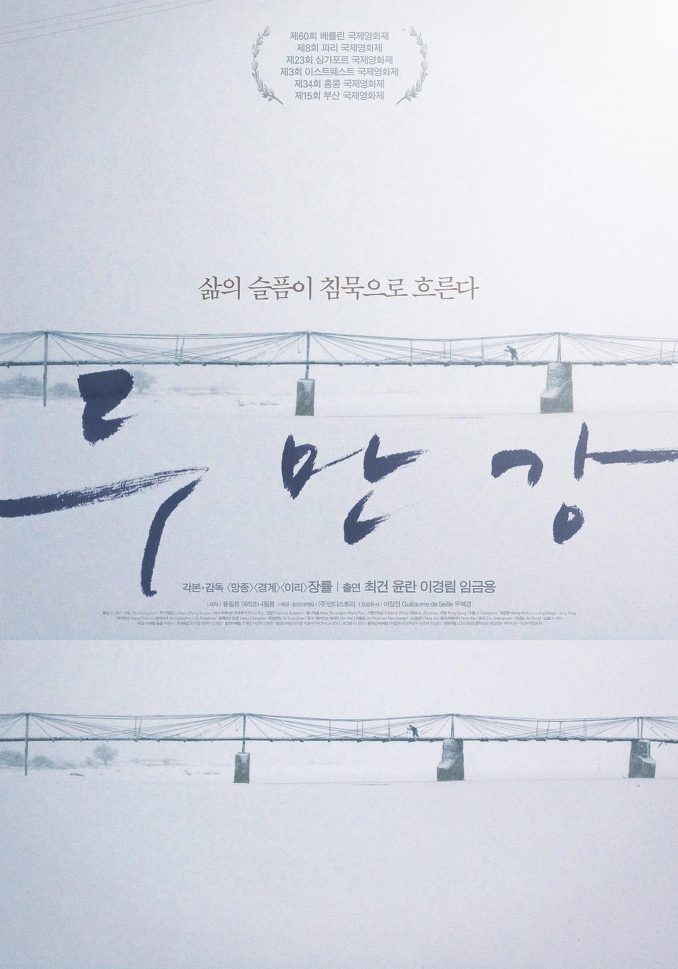
"Bean Man River" poster
In the early stage "Mango", "Boundary" and "Bean Man River", these elements are comparable to heavy shackles, firmly attached to the characters, directly affecting or even completely rewriting their fate. Although "Dou Man River" does not directly show Zheng Zhen's final fate, the audience understands that he will be sent back to North Korea through the picture of him being captured by the border police.
The later "Gyeongju", "The Song of the Goose", and "Fukuoka" were transferred to the current real life and reduced to a distant background with little effect. As a well-known scholar who studies the history and situation of East Asia, Cui Xian in "Gyeongju" lacks interest in big macro issues, and does not feel that his work is of any value. Bridge "encounters" again in order to awaken deep feelings for a dead friend.
4
In "Long Confession", the elements related to the past events of East Asian countries simply disappeared, leaving only individual memories in the air of a foreign land, reflecting the dreamlike private past events and private emotions.
But that doesn't mean the film, which focuses on "little love," lacks depth. Compared with those films that try to render love farce with noisy pictures, "The Long Confession" uses calm and restrained shots to restore the purity of love and endow life with the dignity it should have.
In the film, the "new relationship" between Yanagawa and Lichun and Lidong, which is narrated by three dances, did not change the "old form" due to the changes of time and space. ”, sadness presents the beauty of morality and etiquette in traditional oriental culture.
The three of them were walking on the streets of Liuchuan in the dark, and the atmosphere was suddenly a little awkward. He put his phone on a vending machine and found a piece of tango to play, as if the vending machine had been turned into a jukebox by him. Lichun sang along with the melody, shaking his body gently, as if he was inviting Yanagawa. Yanagawa also danced beside her former lover while she was still drunk. 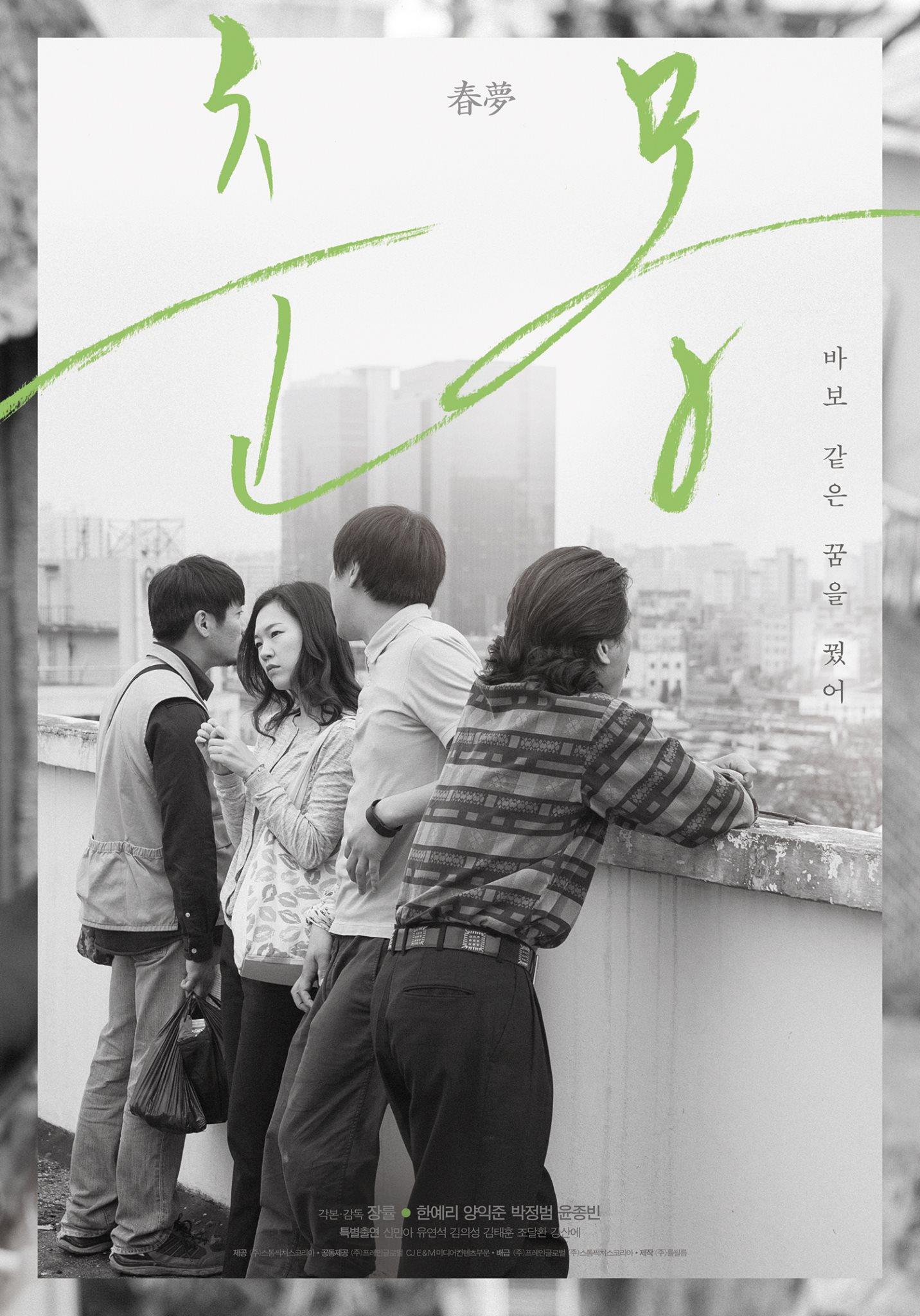
"Spring Dream" poster
But then, Lichun stopped, and the scene of the two-person dance ended. He completely handed over the temporary open-air stage to Yanagawa and concentrated on being her audience with Lidong. Yanagawa is like Yili who gently shakes her body on the rooftop in "Spring Dream", temporarily using dance poses to resolve her worries. Looking at Liuchuan like this, Lichun couldn't help but say to himself: I taught her to dance back then, but now she is better than the blue.
Twenty years ago, Yanagawa moved to Beijing with his family from a city in the south. When he met Lichun, who grew up in a strong Beijing-style cultural atmosphere, he was struck by his handsome appearance and his "irresponsible casualness (in Yanagawa's own words)". Jin Er was deeply attracted and became a couple with him. Unfortunately, she is only one of his girlfriends, and he is far from loving her as much as she loves him.
For Lichun, Liuchuan is a fresh wild lily from the south, with an exotic aura that he can hardly find in the northern girls around him. Taking pictures of such a girl in "Patting Pozi" will undoubtedly make him more face in front of his buddies. However, the growing environment also told him that he should marry a woman who looks like a rose or a chrysanthemum in Beijing. 
"Spring Dream" stills
Therefore, Lichun regards his love with Yanagawa as a "spring dream" that belongs to young people only. Because he knew that he wanted to live like most people after waking up, he didn't cherish this relationship. While having a romantic relationship with Yanagawa, who could not speak Beijing dialect, he laughed at her southern accent with his partner. When he saw Liuchuan again, he said that he had never stopped thinking about her over the years. It was a joke that was too full of words, bringing out his past behavior patterns, and he outlined that his current life is like stagnant water without waves. It shows that he hopes to relive his old dreams with her in an environment far away from his wife and daughter.
Despite this, Yanagawa still wanted to achieve a positive result with Lichun Xiu. In Houhai, she recalled the scene where Lichun rescued her from the lake in front of her, while waiting for him to appear, but she was disappointed for several days. Lichun, who was busy dating other girls, forgot her existence.
Love stories are usually flowery and ruthless. While Liuchuan was hurt by Lichun, he couldn't transfer his love for Lichun to Lidong, who always accompanied her silently, even if Lidong didn't speak the Beijing dialect that made her very painful for her. At that time, Yanagawa's father cheated, and she went to London with her mother, who was also hurt by love, to seek refuge with relatives. She did not pin her future on Lichun or Lidong.
Twenty years later, the three reunited to recall the past. Most of Lichun had forgotten, while Liuchuan's memory was intermittent. Lidong still acted as Liuchuan's spokesperson like a teenager, clearly remembering the details related to her. Liu Chuan was moved by this and fell in love with Li Dongxin. But even so, she just regarded Lidong as the boy who accompanied her in Houhai waiting for Lichun to appear, and habitually chose to return to Lichun. It seemed that the waiting had finally come to a successful conclusion.
Li Dong did not take the initiative to break the relationship with Yanagawa and maintained the original balance. Lichun received a call from his wife to interrupt his trip to return to Beijing, and Lidong was able to get along with Liuchuan alone. But in the quiet atmosphere of the night, he just imitated Yanagawa to dance alone in front of the Buddhist altar with dim light at the end of the aisle of the guesthouse, and did not knock on the door of Yanagawa who lived next to the Buddhist altar-even when he stood in front of the door hesitating , Yanagawa, who knew that the door was separated, was also anxiously waiting for the sound to cut through the tranquility, and still chose the original path to return. 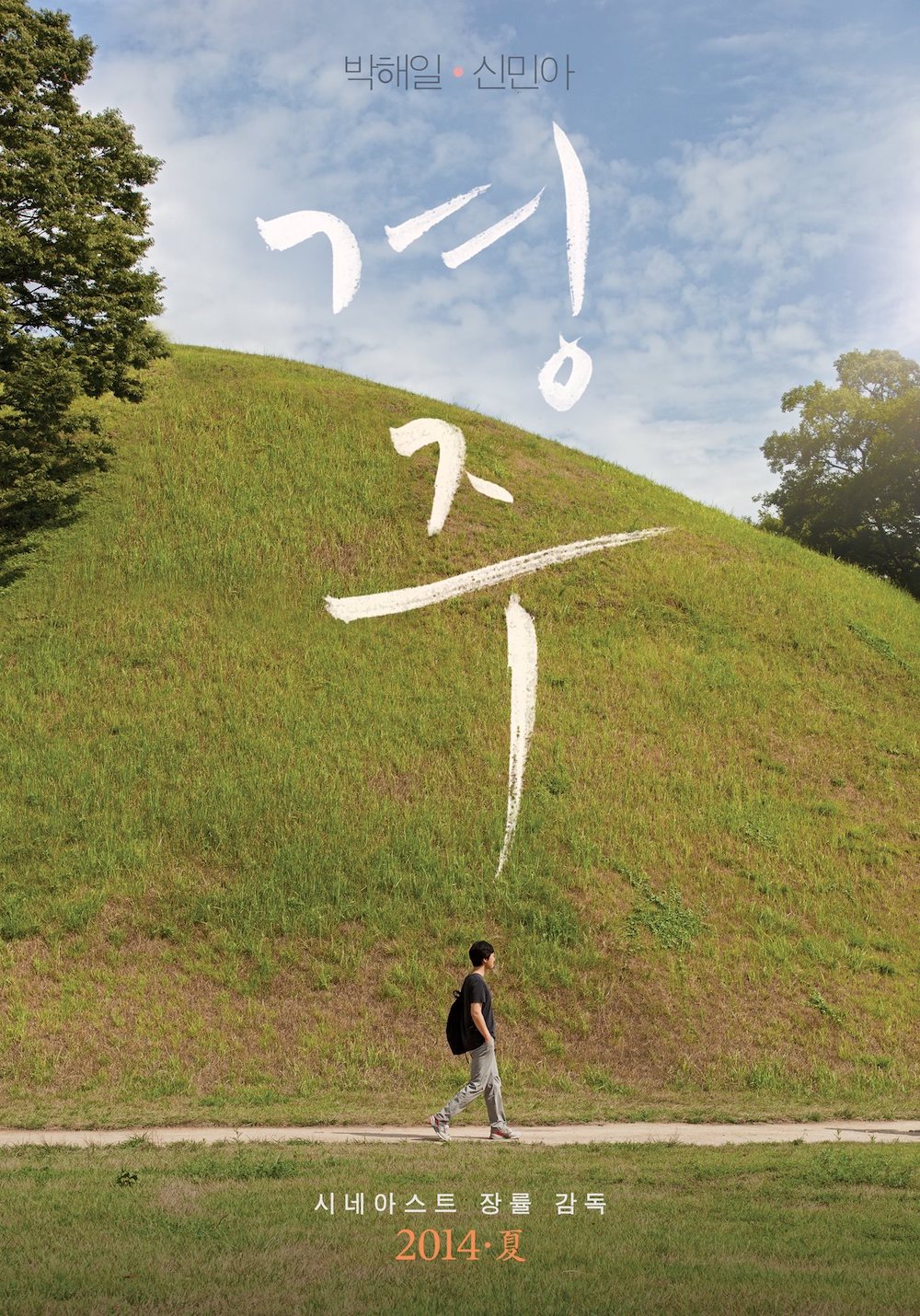
"Gyeongju" poster
Cui Xian in "Gyeongju" also chose to retreat when he saw that the water was coming. After a day of getting along with the hostess of the teahouse, he developed a mutual affection for each other. When he stayed at her house at night, although he knew that she had deliberately closed the door, he still spent the night on the sofa in the living room.
In Zhang Lu's other films, there are also characters like Li Dong and Cui Xian. The three uncles in "Spring Dream", although they are around Yili all day long, they have never thought about her. 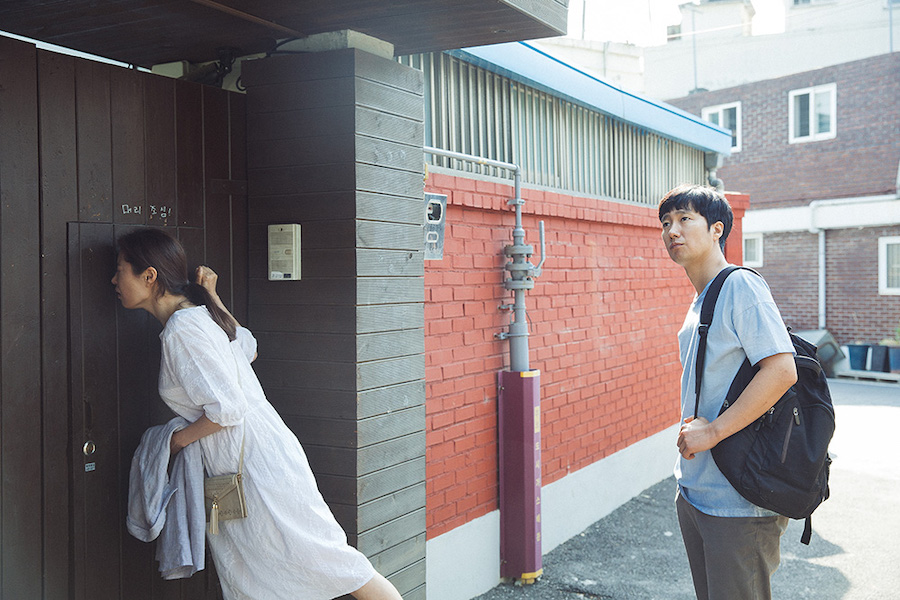
"Yong Goose" stills
According to the evaluation of Yunying by the tavern owner who is over 500 years old in "Yong Goose", although these people "are young, they have the sensibility of the old times". Probably because of this, they will stop the momentary greed in time out of the attitude of being responsible for the future life of the person they love.
After all, Cui Xian is about to return to China, and he may not come to Gyeongju for the rest of his life. Li Dong is about to bid farewell to this world. It is better to keep the "long confession" buried in his heart as before.
5
Zhang Lu and Li Cangdong not only have the experience of transitioning from writers to directors, but they also belong to late blooming directors, and their films are also deeply nourished by literature. 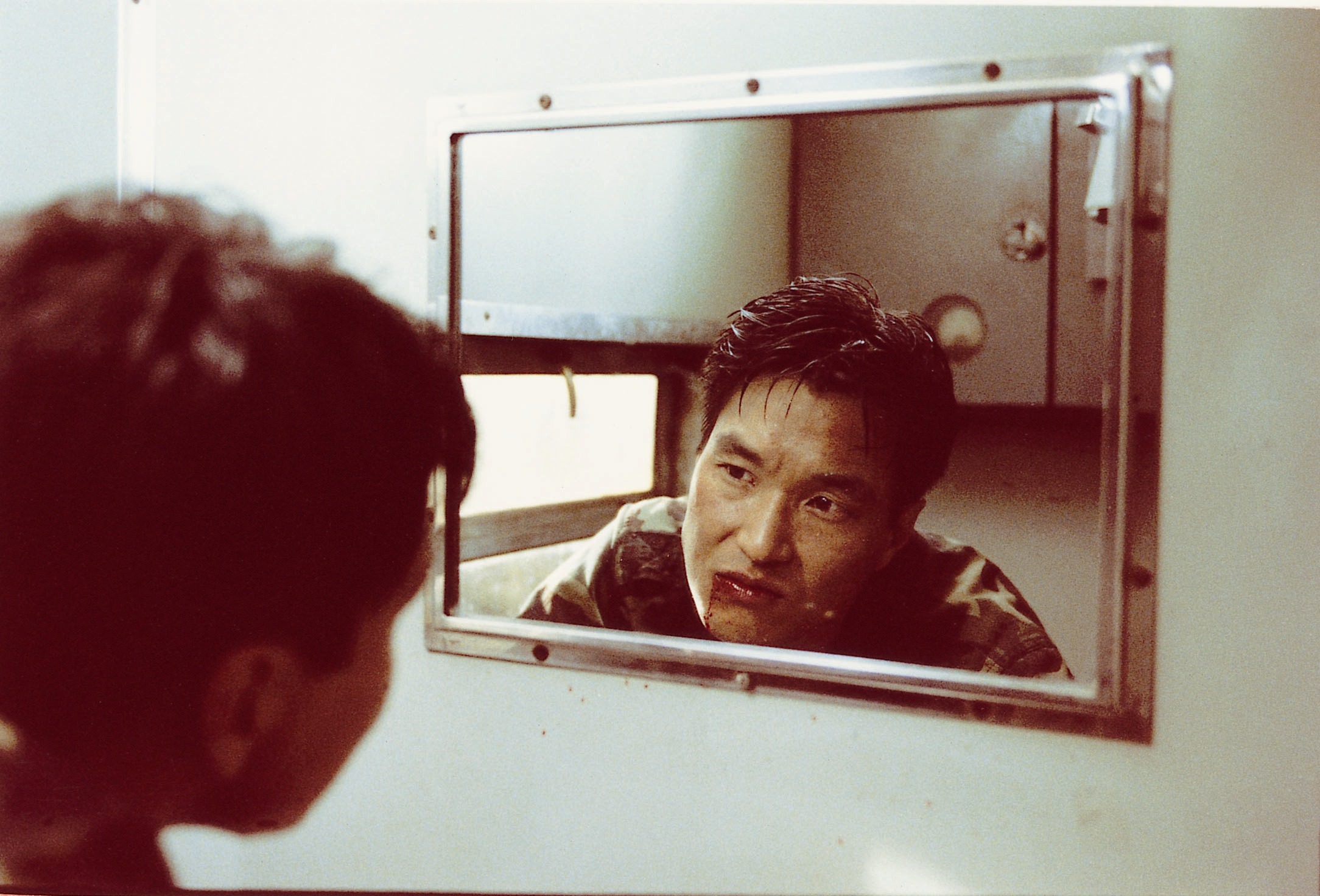
Stills of Li Cangdong's "Green Fish"
In 1997, 43-year-old Li Cangdong borrowed his first feature film "Green Fish" and attracted worldwide attention as a "writer and director". Three years later, in the millennium, the 38-year-old Zhang Lu used "11 Years Old" to prove that he could both write and direct. The later films of the two were also written and directed together.
Combining the two novel collections of "Burning Paper" and "Luchuan has a lot of dung" launched by Li Cangdong in China, his films and novels have maintained a coherent theme of creation. They both show the urbanization and industrialization of South Korea by telling the fate and tragedy of the little people. various social problems that arise in the process.
As a literary creation in his youth, Zhang Lu cannot judge the relationship between his novels, poems and his films because they have not been published publicly. However, from his use of Tang poems, ballads of the Republic of China, and modern Korean poems, literature, especially poetry, plays an important role in his films. The air, which is indispensable in the environment, determines the rhythm of the characters' actions, as well as the way and path they travel between homeland and foreign land, reality and fantasy. 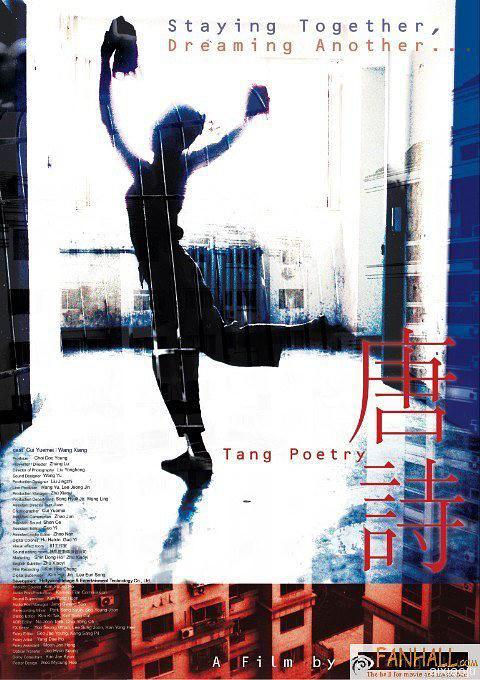
"Tang Poetry" poster
The first feature film he directed in 2003 was simply called "Tang Poetry". The only documentary filmed ten years later, "Landscape", although there is no direct reference to the verses, it draws on the structure of verses or groups of poems to describe the lives and dreams of people in the Central and East Asian countries who work in Korea. These low-level migrant workers in various industries in Korea talk about their impressive dreams, almost all of which are related to their hometown and relatives.
Zhang Lu and Li Cangdong's early films also have a spiritual connection. They both planted family straws in a cruel social environment. Changhao's sister is a dumb girl in "Bean Man River". When she received a call from her mother from South Korea, her mother didn't hang up in a hurry because she couldn't speak, but gave thousands of warnings to comfort her body and mind in disguise A double traumatized mute woman. In "Green Fish", after Mo Dong killed the boss, he cried and called his home phone, hoping to hear a few words of his mother's nagging, but the answerer was the eldest brother who couldn't speak. Even so, Mo Dong still asked the eldest brother not to hang up the phone, and while holding back tears, he told the eldest brother about their childhood fishing under the Red Bridge.
However, the later creative directions of the two famous directors were quite different. Li Cangdong has always been based in South Korea, paying attention to the crushing of the weak by society and revealing the process of individual alienation. Zhang Lu is looking at East Asian countries as mentioned above, letting the characters go out of the familiar home environment and come to the unfamiliar foreign land. With the help of long or short encounters, they show the shaping of the characters by national history or private past events, and the escape of the characters. The possibility of spiritual bondage.
6
In "The Long Confession", Yanagawa's life in London, although there is no positive account, but through her dialogue with Lidong about her imitating the CCTV anchor to practice pronunciation, it can be found that she is far away from Beijing. s damage. She came to Yanagawa later, because Zhongshan Dashu, whom she met in London, told her that his hometown had the same name as hers. 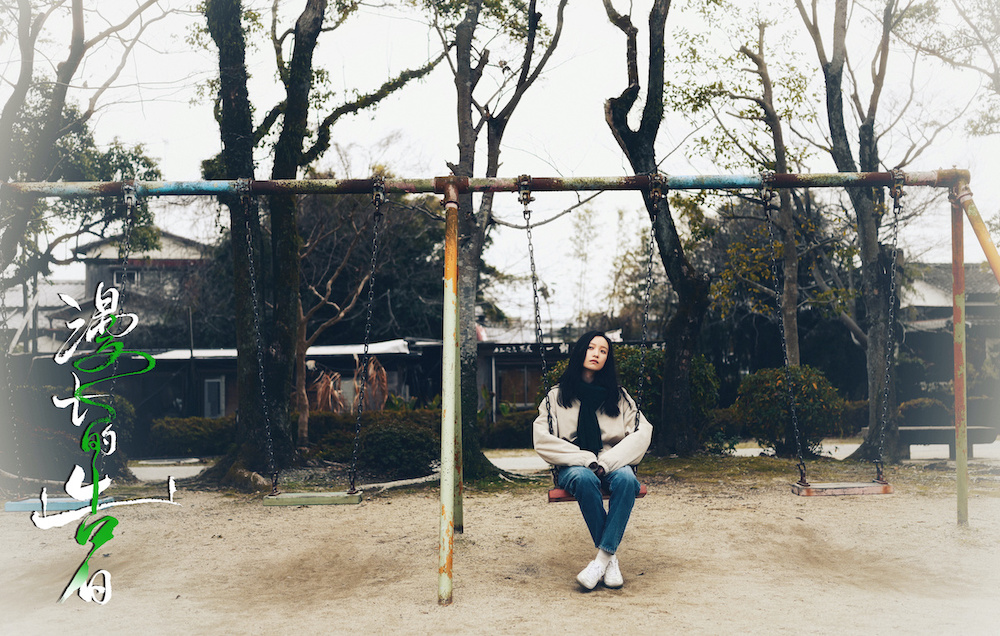
Yanagawa in a daze
However, Yanagawa did not become her spiritual home because of this, allowing her to get out of the haze. She lived a lazy and comfortable life in Yanagawa. Apart from singing in the tavern, she wandered and dazed in this small town. But these behaviors just show that she has never withdrawn from the quagmire of the past. One of the songs she often sings is "Oh my love". The local scenery of Liuchuan is really like Houhai.
Because of this, the open-mindedness and indifference she showed when she "reminisced about the past" with the reappearing Lichun and Lidong was just a pretense. There were tears in her heart. It was not until she returned to Beijing in the beginning of winter that she and the old woman in the izakaya (played by Ryoko Nakano) drank and talked about life at the table, and then she let the tears flow freely and completed the reconciliation with the past.
This kind of brushstroke is similar to that of the hostess of the small and medium-sized restaurant in "Yong Goose", which uses the self-brewed rice wine and her understanding of life, so that Yunying understands that "safety of heart is hometown". 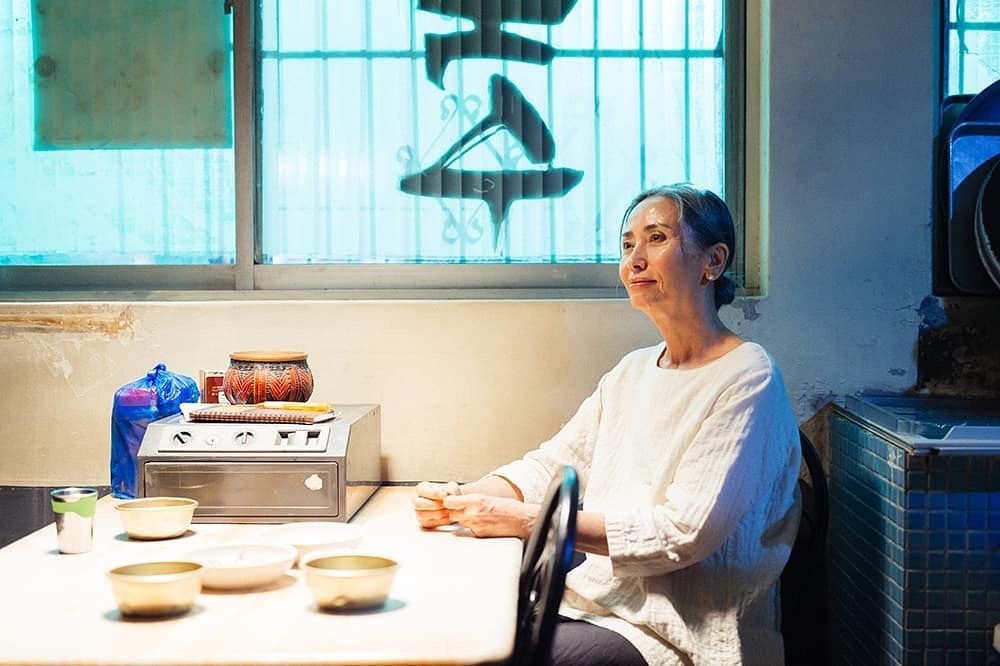
The hostess of the small restaurant in "Yong Goose" said "Peace of heart is hometown"
It is also because of facing up to the past and no longer holding a grudge against the past, Liu Chuan will, after Lidong's death, violate his oath that he will never go to Beijing again, and return to the city that she once loved and hated, and Lichun. Reminiscing about Lidong like an old friend, and calmly facing the suspicious gaze from Lichun's wife.
It should be quite gratifying to see Liuchuan like this in the Spirit of Heaven in Lidong. His deep love for Yanagawa is reflected in the details, including clearly remembering how long she stayed in Beijing, trying to figure out why she clapped her hands to the moon in the sky in Houhai, and learning that she spent two years in Japan. Mastered Japanese etc. But this intention of his, there is no calculation element that pays back, not for the purpose of occupying Liuchuan, but only hopes that she can get peaceful happiness.
Twenty years ago, Lidong asked Liuchuan about "Are you happy?" in Beijing, and she asked the question back. Twenty years later, he asked her the same question in Yanagawa, and she also did not answer directly. When she returned to Beijing to give an affirmative answer, he went to heaven and could never hear it again.
Of course it's a pity. But just like the film's theme song "Autumn Willows", which was born during the "School Music Song" period, "I think of that day, the greenery, the spring is good, today, it is deserted and the autumn is old", impermanence is the normal state of life.
The consolation is that although "the prospect is completely different, and I think about it and look back, it is very sad", Li Dong, who said during his lifetime that he would never leave a proof of his life, but like Liu Chuan, he broke his oath and left Liu Chuan a plate. He secretly recorded a tape of her singing "Oh my love", leaving the only "evidence of love".
"Oh my love (lover) for the first time in my life..." The first meeting with her rewrote half of his life; the relics he left behind will support her for the rest of his life. Even if they never had half a kiss.